Ballast Hills Burial Ground
Religious Place In Newcastle City Centre, Tyne And Wear
A none conformist burial ground that is now a recreation area.
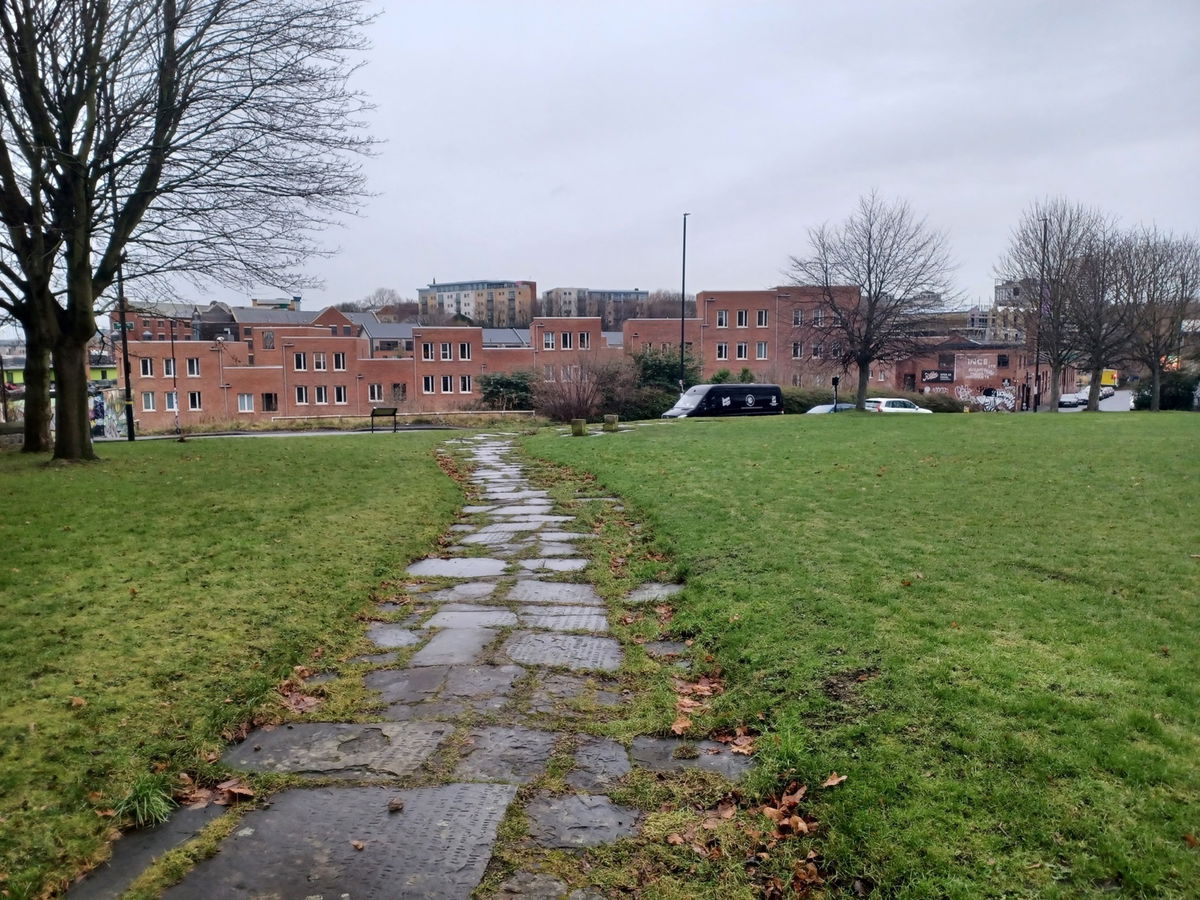
Ballast Hills Burial Ground is now a fairly non-descript park / small area of greenspace, originally constructed from ballast from the ships using the Tyne, to the rear of the old Ouseburn School building on the south eastern edge of the Ouseburn in Newcastle, but it has a fascinating history that, if you look closely, reveals itself in the footpaths that loop around it.



Ballast Hills Burial Ground was, as its name suggests, formerly a graveyard. In fact it was the most important non-conformist (someone who dissents from the established Church of England) burial ground in Newcastle. During the early to mid 17th Century Newcastle saw an influx of Scots (who were Presbyterians) and European Protestants who settled in the St Lawrence area of the city to live and work, a large number of these immigrants became Quakers. As a result of their religion they did not wish to be buried in Anglican burial grounds, this was also the case with Baptists, Independents and Methodists who arrived in large numbers during the late 18th century.



It is thought that burials had been occurring at Ballast Hills as early as the 1609 plague year as well as through later plagues during 1625, 1636 and 1665, giving it a well deserved early nickname of “Plaguey Fields”. During the years of 1818 to 1824 an article in the Newcastle Courant stated that Ballast Hills had seen more funerals than the whole of the rest of Newcastle put together. It is thought over 3,600 bodies were buried in this area in that spell, leading to its expansion in 1827. Reports from the time suggest that this overcrowding caused a few problems as swine began to root and grub around the graves!


The burial ground was closed following the cholera outbreak of 1853 and in 1930 the site was laid out as a playground after the gravestones were removed in 1929. The remaining tombstones were laid flat to create the footpaths of the site while those of prominent dissenters and Methodist Ministers were re-erected against the eastern wall of the old School building and can still be seen today. Most of the inscriptions are now almost impossible to read but some bits can be deciphered, so if you look down you may be able to see the names of some of those who found their resting place there.
Get 3 points if you have visited this place. Already visited by 42 VIPs.
Login to the VIP area to add places to your bucket list, mark them as visited and more importantly see where you rank on the league table.
How To Find Ballast Hills Burial Ground
Where Is Ballast Hills Burial Ground?
Lat / Long
54.972415, -1.587772
What three words
Where To Park For Ballast Hills Burial Ground?
Lat / Long
54.97158, -1.590873
What three words
Parking can be found outside the Sailors Bethal on Horatio Street.
Contributed by Andrew Gardner
I love being outdoors, in nature, and experiencing the relaxation it brings. Wandering through the northern countryside seeing unexpected buildings, historic places and occasionally surprised wildlife is one of life's great pleasures.
More Places from Andrew
More Places In Newcastle City Centre
Find more fabulous places in Newcastle City Centre, Tyne And Wear and if you know of a place we haven't listed, then let us know.
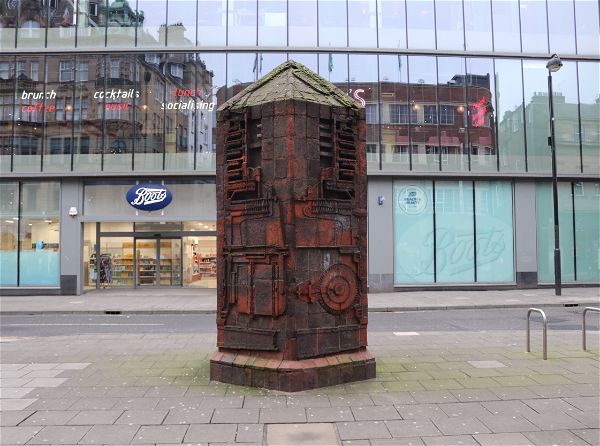
Parsons’ Polygon
Art Newcastle City Centre Tyne And WearRelief sculpture around a metro ventilation shaft.

Prudhoe Chare Sculpture Wall
Art Newcastle City Centre Tyne And WearSculptures and decorations from old buildings that were demolished to make way for Eldon Square.

Armstrong Memorial
Statue Newcastle City Centre Tyne And WearA life sized bronze sculpture in memory of Lord Armstrong on Barras Bridge outside the Hancock Museum.
More Religious Places
So this religious place wasn't enough and you want more? Don't worry we have you covered.
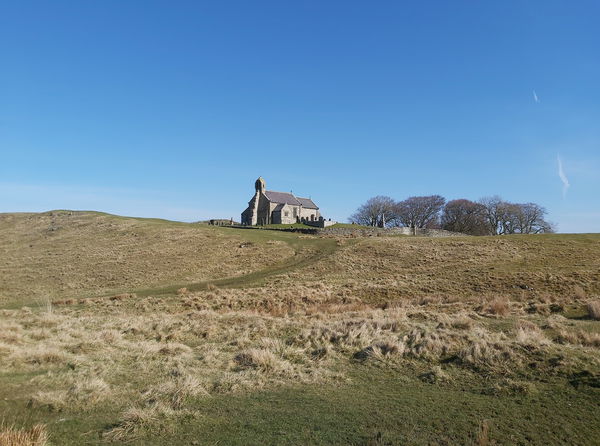
Church of St Aidan's Thockrington
Religious Place Swinburne NorthumberlandAn ancient Northumbrian Church, one of the oldest in the Country, dating back to the 11th Century that stands on a hill with amazing views in all directions.
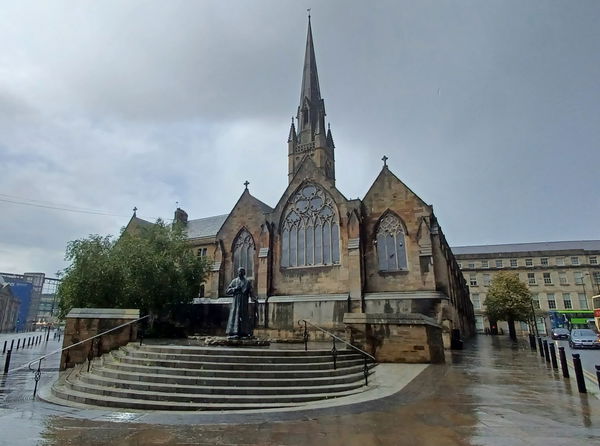
Cathedral Church of St Mary
Religious Place Newcastle City Centre Tyne And WearThe Grade I listed Cathedral Church of St Mary, Newcastle's Catholic and first Cathedral.
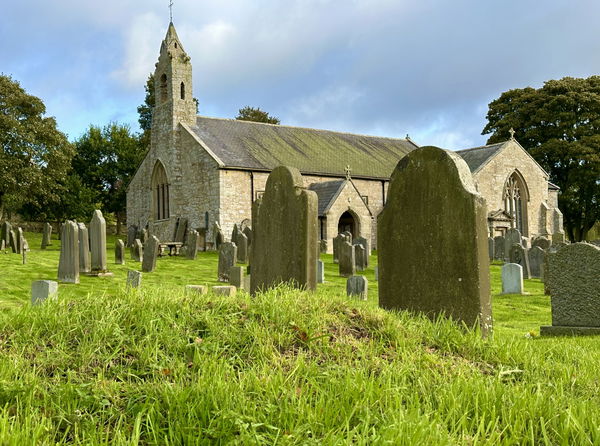
St Cuthberts Church Elsdon
Religious Place Elsdon NorthumberlandA 14-century church and all-round home to saints, tall tales, bones of Border Rievers and men of battle.
Never Miss A Fabulous Place
If you are afraid of missing out on all the fabulous places we post, or just want to be the first to know, then sign up to the Fabulous North.
Each week we will email you all the brand new places that we visit.
Sign Up To AlertsFind Us On Facebook
We post all our new places daily on our Facebook Groups page, so join the group today and be notified when we add a new place.
Join Our Facebook GroupBallast Hills Burial Ground was listed in Religious Place // Tyne And Wear // Newcastle City Centre

